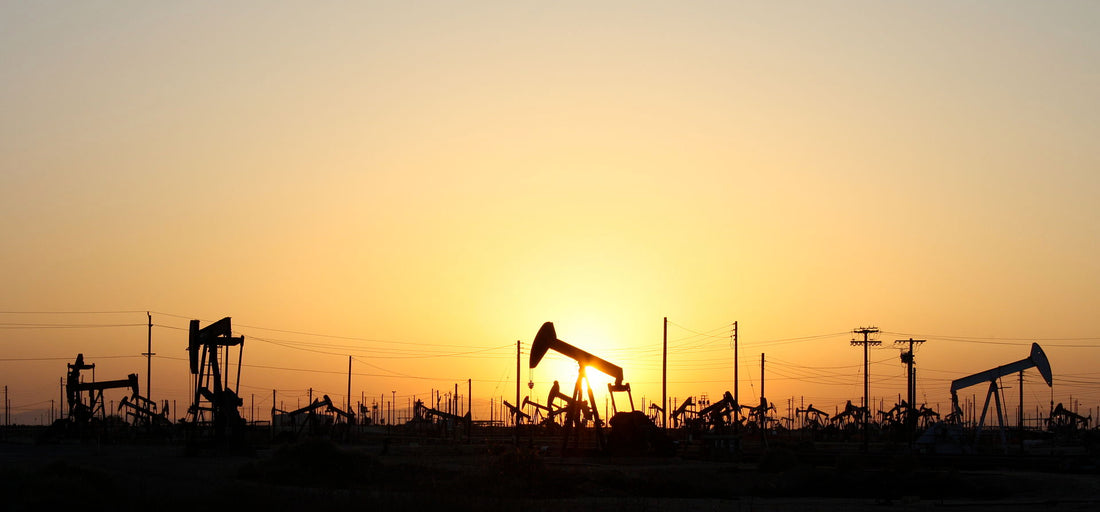
Recycling Fracking Fluids Will Reduce Water Use and Limit Contamination Risks Experts Say
By Dan DeBaunShare
After conducting a thorough analysis of fracking water produced by three shale gas reservoirs, scientists from Rice University recommend that environmentally-friendly measures are initiated for treating and reusing the wastewater produced.
The scientists advocate that instead of disposing of fracking wastewater produced during fracking operations, this water should be recycled using advanced treatment methods, for reuse in the fracking process. According to Andrew Barron, who led the study which was recently published in the scientific journal, Environmental Science: Processes and Impacts, this would not only reduce the risk of accidental spillage, and thus reduce the risk of contaminating underground aquifers and local drinking water resources, but would also save millions of gallons of water every year.
Even though the Texas fracking industry only uses around 1.5% of the volume of water used by farmers and municipalities, this still equates to around 8.5 million gallons spread between the two main shale formations in Texas, which according to Barron, places considerable pressure on communities living nearby.
The researchers initially analyzed fracking fluids that were pumped through shale formations in New Mexico, Pennsylvania and Texas. Barron together with lead author, Samuel Maguire-Boyle, discovered that the fluids produced by fracking (both gas-produced water and shale oil) do not contain significant amounts of potentially hazardous polyaromatic hydrocarbons, but do contain small concentrations of other chemical compounds, which they believe the fracking industry should phase out by developing non-chemical alternatives for treating fracking fluids and the wastewater produced.
Currently, wastewater from fracking fluids pumped into a gas well is either pumped out to a closed fluid-capture system or it is pumped back underground for disposal. According to Barron, neither of these options offers an effective long-term solution.
“Ultimately, it will be necessary to clean produced water for reuse in fracking,” he said. “In addition, there is the potential to recover the fraction of hydrocarbon in the produced water.”
According to Barron, fracking fluids are comprised of 90% water, with 8-9% consisting of sand or some type of proppant that holds the fractures open for the oil and gas to escape, and 1-2% consisting of a variety of salts, scale inhibitors, friction reducers, gelling agents, biocides, gel breakers, and organic and inorganic acids. The organic substances may occur naturally or they may be remnants of added constituents.
The scientist revealed that the majority of salts, minerals and organic substances contained in fracking wastewater originate from the connate fluids trapped within the pores of the underground rock, and are of little concern. However, they found that fracking wastewater also contained potentially hazardous chlorocarbons and organobromides, which likely formed as a result of interactions between large concentrations of bacteria present in the water and the chemicals or salts used in the fracking wastewater treatment process.
According to Barron, the fracking industry often treats fracking water with hypochlorite or chlorine dioxide so that it can be recycled for reuse. However, these treatment processes can enhance the ability of bacteria to convert hydrocarbons that occur naturally into more hazardous chlorocarbons and organobromides.
“We believe the industry needs to investigate alternative, nonchemical treatments to avoid the formation of compounds that don’t occur in nature,” said Barron.
Journal Reference:
-
Regular price $234.00 USDRegular priceUnit price / per
-
Regular price $327.00 USDRegular priceUnit price / per
-
Regular price From $367.00 USDRegular priceUnit price / per
-
Regular price From $408.00 USDRegular priceUnit price / per
-

 Sold outRegular price From $451.00 USDRegular priceUnit price / per
Sold outRegular price From $451.00 USDRegular priceUnit price / per -
Regular price From $478.00 USDRegular priceUnit price / per
-
Regular price $332.50 USDRegular priceUnit price / per
$350.00 USDSale price $332.50 USDSale

Dan DeBaun is the owner and operator of Big Berkey Water Filters. Prior to Berkey, Dan was an asset manager for a major telecommunications company. He graduated from Rutgers with an undergraduate degree in industrial engineering, followed by an MBA in finance from Rutgers as well. Dan enjoys biohacking, exercising, meditation, beach life, and spending time with family and friends.
~ The Owner of Big Berkey Water Filters
















